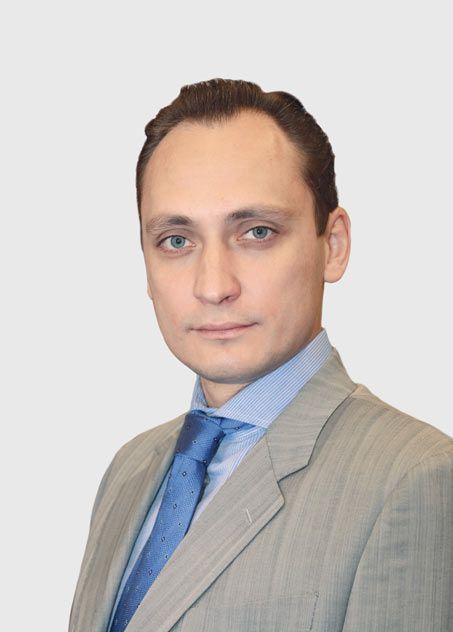
Dear Shareholders,
In 2013, Aeroflot Group took another step towards achieving its strategic goals. We are maintaining steady growth of our operating indicators and improving our financial results.
The Group’s financial results in 2013 show a strong positive dynamics. Group revenue increased by 12.3% to USD 9,135.7 million, thanks mainly to an increase in passenger traffic of 14.3%. Aeroflot Group has kept its revenue yield per available seat kilometer at a stable level for several years by retaining its market leadership, increasing the efficiency of operations and expanding the scale of its business.
Group EBITDA increased by 1.5 times in 2013 to USD 1,000.0 million. EBITDA margin increased from 8.2% in 2012 to 10.9% in 2013, underscoring the efficiency of cost management by the Group. Profit for the year increased by 38.5% to USD 230.3 million. Cash flows from operating activities in 2013 increased by 68.1% year-on-year to USD 908.9 million. Aeroflot Group continues to provide stable and attractive rates of return to its shareholders: base earnings per share rose by 2.6 US cents in the reporting year to a level of 23.9 US cents.
The Group strengthened its financial position in 2013 by reducing the use of borrowing, maintaining high levels of liquidity, and also through a well-judged hedging policy. Cash and short-term investments had risen by 15.4% year-on-year as of 31 December 2013, to USD 578.4 million. Cash flow from operating activities was USD 908.9 million and the current ratio was at a level of 1.2.
Strong financial performance has been made possible by tight control over costs, productivity gains, optimisation of operations at the Group’s subsidiaries, development of the route network, and a flexible fare policy.
Improvement of operating efficiency
Aeroflot Group is working continuously to improve the financial efficiency of its business. In 2013, we achieved a steady reduction of per unit operating costs thanks to strict cost control, use of a young and modern aircraft fleet, greater fuel efficiency, and development of our maintenance and repair system.
A key factor contributing to the lower per unit operating costs in 2013 was optimisation of fuel costs and maintenance of fuel efficiency levels of the aircraft fleet. The Group extended formula pricing to its airline subsidiaries and expanded the number of suppliers in order to obtain more competitive fuel prices, and also continued to actively monitor levels of fuel consumption throughout the Group. The unit share of fuel costs per seat kilometer continued to decline in 2013 and reached 2.28 US cents per ASK (down from 2.39 US cents in 2012), while fuel consumption per tonne kilometer decreased by 2 grams to 313 grams per TKM.
Increased productivity also contributed to the reduction of unit costs. Labor productivity increased by 9% in 2013. Personnel numbers rose by only 6% while passenger numbers increased by 14.3%, thanks to optimisation of the personnel structure and the avoidance of duplication between jobs. These figures show the efficiency of the Group’s approach to management of human resources.
Work on efficiency in maintenance and repair also contributed to a reduction in unit costs. Focus on expanding the range of in-house maintenance and repair services in order to minimise the use of external contractors and productivity growth led to lower unit labour costs for servicing the main types of aircraft in the fleet of Aeroflot Group.
Integration of subsidiary airlines
The Group continued to integrate subsidiaries and to adopt a multi-brand approach towards the management of airline assets. For the first time since the beginning of the integration process in 2011, Aeroflot’s airline subsidiaries achieved a break even aggregated operating result. Synergies from the integration of subsidiaries into the Group structure have helped to improve the Group’s financial performance. A number of projects were announced in 2013, which will contribute to achieving key objectives and ensure the growth of Aeroflot Group’s business in the future:
- Aurora Airlines was created by merging two regional players, OJSC Vladivostok Avia and OJSC Sahalinskiye Aviatrassi. The new operator will work in the Russian Far East market, which has promising passenger traffic potential of six million people.
- The Group decided to establish a new airline, Dobrolet, which will take a substantial share of the emerging market for low-cost transport in Russia, providing passengers with high quality transportation services at affordable prices.
Reaching our full potential
In 2013, Aeroflot Group laid the foundation for further growth of its business in the domestic and international air transportation market in order to achieve the Group’s strategic targets in the future. We have invested enormous efforts in the development of Group companies, proved our ability to control costs, made significant progress in the integration of subsidiaries, and identified new directions for development. Certainly, the favourable macroeconomic situation has contributed to our strong performance. New challenges lie ahead in 2014 when we must maintain strong market performance by our companies, realising the existing potential for business growth and assuring best-possible performance by JSC Aeroflot and the Group as a whole.
for Finance and Network
and Revenue Management
Shamil Kurmashov